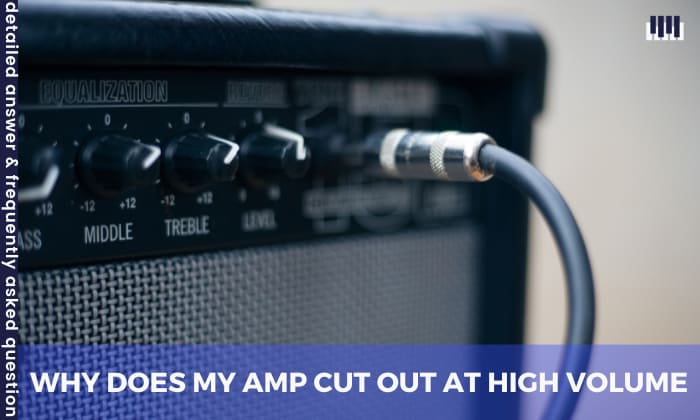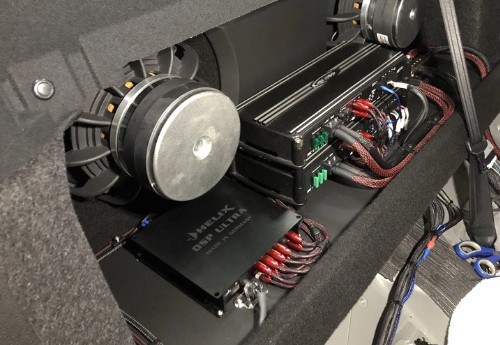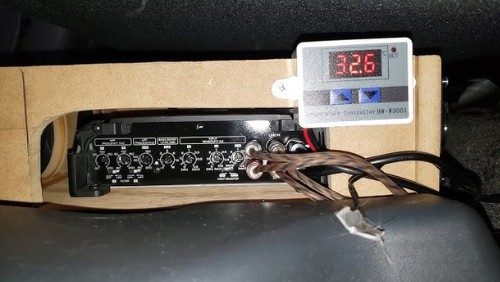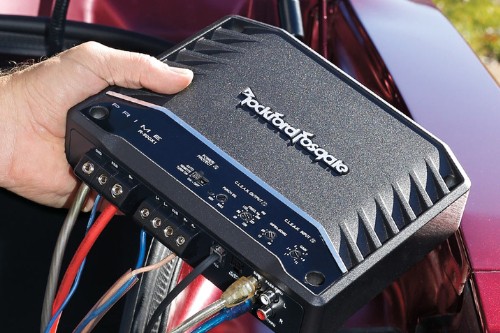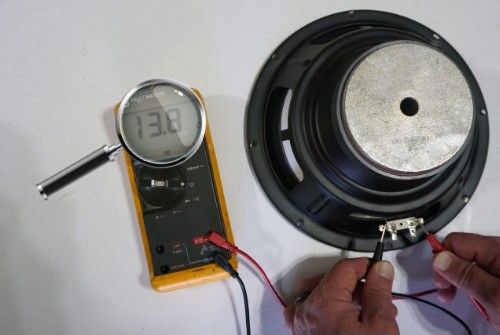At times, it can be bothersome asking yourself “why does my amp cut out at high volume?” However, I discovered that this is a common issue discussed online.
According to a Reddit user, FadeIntoReal, this problem occurs due to the amp drawing excessive current, a defective voice coil, or a leaky output component.
John Robson, a Former Technical Advisor, commented on Quora that the cause might be too much strain on the amplifier when the volume is turned up or wrong speaker impedance.
Table of Contents
Common Causes of Amp Cutouts
1. Insufficient Power Output
Crossover & Power Supply
The subwoofer bass fades at high volumes due to increased energy demand. When you turn on the system, the speakers are first to consume power, leaving and reducing the available energy for the subwoofer.
To solve the issue, set the subwoofer crossover point about 10Hz below the speaker’s lowest frequency. You should also check the car battery with a multimeter; it should read 12.5 to 12.8V with the engine off and 13.8 to 15.3V with the engine on.
Last but not least, ensure all cables are intact, and replace the fuse if it’s blown.
Excess Voltage Demand and Overheating
According to a user on the Car Audio Forum, if the amp shuts off when the bass hits, it might signal that the amplifier is demanding more voltage from your battery.
This situation occurs as a protective measure. The amplifier safeguards itself from overheating when the volume rises. Moreover, if the battery cannot handle it, it is forced into protection mode.
To fix this issue, you must enhance your ventilation by adjusting the placement of your amplifier or installing fan units.
Another solution is to routinely inspect or boost your voltage to meet the requirements of the amplifier.
2. Installation Concern
If you raise your amplifier volume high and your car stereo turns off, it might indicate a problem when setting up the device. Also, due to incorrect installation, overloading issues may be your concern.
The best way to troubleshoot this issue is to ask for help from a certified and or qualified technician or installer.
Here are some examples of the typical problems when it comes to installation:
Wiring
In this situation, there might be a problem with faulty connections or incorrect cabling, causing misalignment among the speakers.
As advised by Reddit user avphenom, thoroughly inspect and examine the speaker cables and ensure the wires do not randomly contact each other.
Double-check the proper wiring connection between the amp and speakers. The ground wire should match the power wire in gauge and be protected with caulk to prevent corrosion.
To check for proper grounding, use a multimeter and measure the ohms between the grounding and the battery’s negative terminal. The result should be 0.5 ohm.
Overabundant Output Linking
Your 4-channel amp can cut out at high volume because you’re using too many speakers.
So, to resolve this, you might want to consider boosting your amplifier. This way, you will have a suitable audio system that provides the quality of sounds you prefer.
Check the ohms of your speakers and ensure your amp can handle them. If the amp says “4-8 ohms,” that’s the speaker impedance range it can accommodate.
Wiring speakers in a series will increase their impedance (two 8-ohm speakers will generate 16 ohms), while parallel connections will produce the opposite effect (three 6-ohm speakers generate 2 ohms).
Conclusion
Now that we answered the question “why does my amp cut out at high volume,” you can keep playing your music without disruption.
Before buying your amplifier, ensure that it is compatible with the voltage of your battery so that you won’t have a problem with overheating or insufficient power outputs.
Additionally, make sure that you ask for professional help when it comes to wiring so that you do not mess up the connection of your amplifier, causing it to go into protection mode.

Sam Stephenson is a writer who grew up in Washington, North Carolina. He was 2010 and 2015 ASCAP Deems Taylor / Virgil Thomson Prize winner and a 2019-2020 Guggenheim Fellow in General Nonfiction. His books have been published by W.W. Norton, Alfred A. Knopf, and Farrar, Straus and Giroux
